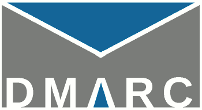DMARC Technical Specification
- Current Versions:
- Previous Versions: (Historical Reference Only)
Related Specifications
Authenticated Received Chain (ARC), RFC 8617
- The Authenticated Received Chain (ARC) protocol, RFC 8617
- ARC preserves initial authentication results across subsequent intermediaries (“hops”) that modify the message and thus will cause email authentication to fail to verify when the message reaches its destination
- Intended to address situations where indirect mailflows are adversely affected when the sending domain publishes certain DMARC policies.
- Recommended Usage of ARC (last draft -09, published November 2020)
- The arc-spec.org website may have more information.
Email Authentication for Internationalized Mail, RFC 8616
Message Header Field for Indicating Message Authentication Status, RFC 8601
Authentication Failure Reporting Format (AFRF), RFC 6591
- Authentication Failure Reporting Format (AFRF), RFC 6591
- A new report sub-type extension for the Abuse Report Format (ARF) (see: RFC 5965)
- Allows for relaying of forensic details regarding an authentication failure
- Supports reporting of SPF and/or DKIM failures
- For SPF, reports the client IP address and the SPF record(s) that were retrieved, producing a “fail” result
- For DKIM, reports the canonicalized header and body that produced a failed signature, allowing forensic analysis by the signer to detect why the failure occurred
- Also supports ADSP reporting of messages that weren’t signed but should have been
- This is the basis for per-message failure reports sent by participating DMARC receivers/verifiers.
- An aggregate reporting format is included in an appendix of the DMARC specification.
DomainKeys Identified Mail (DKIM), RFC 6376
- DomainKeys Identified Mail (DKIM), RFC 6376
- DKIM provides a method for validating a domain name identity that is associated with a message through cryptographic authentication.
- DMARC uses DKIM results as one method (SPF being the other) for receivers to check email.
- More Information: DKIM.org
Sender Policy Framework (SPF), RFC 7208
- Sender Policy Framework (SPF), RFC 7208
- SPF provides a method for validating the envelope sender domain identity that is associated with a message through path-based authentication.
- DMARC uses SPF results as one method (DKIM being the other) for receivers to check email.
- More Information: OpenSPF.org
